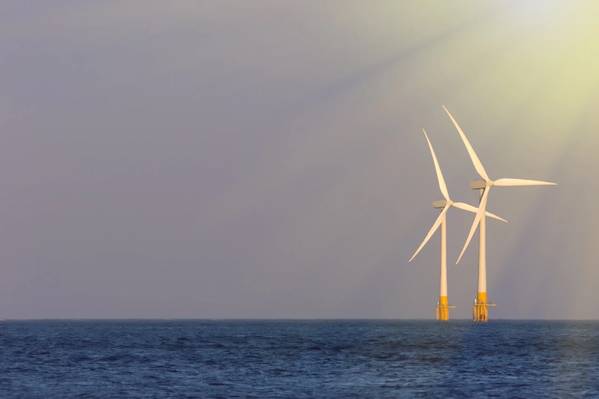
Once again, the events of the last month have shown that the impetus to continue to grow the U.S. offshore wind segment has lost little steam. The foundations are firmly in place to support the deployment of 30 gigawatts (GW) of offshore wind by 2030 and 110 GW by 2050.
Attractive federal incentives are being put in place to promote offshore wind projects and the development of renewable hydrogen projects, which are ideal for pairing with offshore wind projects. Local supply chain development is supported.
Two major outer continental shelf (OCS) projects with around 940 megawatts (MW) of capacity have already reached final investment decision (FID) and have commenced onshore construction.
One large OCS project is now close to final permitting and legal objections have been removed to the development of an approved offshore wind pilot project in the Great Lakes. The number of projects that are expected to make a final investment decision within the next 18 months is seven amounting to around 4 GW of capacity.
A further 16 projects with a capacity of close to 14.5 GW are expected to make an FID within 18-36 months as well as an additional nine projects for 10 GW in 36-60 months.
Longer term, we have identified 38 projects with a total capacity of 43 GW, which support the installation of a cumulative 66 GW by 2035 and 76 GW by 2040.
Eleven OCS developments with a potential of over 18 GW are currently undergoing federal permitting review to create the foundation of meeting the 30 GW by 2030 goal. 17.5 GW of project capacity has secured offtake commitments from states, and the process to procure more offshore wind capacity has been initiated in Massachusetts, New York and Rhode Island.
Federal authorities have launched the leasing process for over 4.5 GW of floating wind capacity offshore California, further auctions are being developed for the South Atlantic, the Gulf of Mexico, the Central Atlantic, Oregon and the Gulf of Maine before the end of 2024.
An unsolicited request has been submitted to develop a 2 GW floating wind farm in Washington State.
Turbine component, foundation and cable factories and Jones Act wind farm vessels are being built in the U.S. and offshore wind port development is accelerating. Incentives to promote further investment in the local supply chain and Jones Act vessels have been rolled out.
Floating wind farm technology demonstration projects are being developed for both Atlantic and Pacific coasts as a precursor to large-scale floating wind farm projects being constructed towards the end of the decade and beyond.
Our forecast accounts for projects that will install over 70 GW of capacity in this and the next decade and a total 110 GW by 2050. The 70 GW forecast capacity will require capital expenditure amounting to over $215 billion to bring onstream, a recurring annual operations and maintenance spend of around $7.5 billion once delivered, and close to $33 billion of decommissioning expenditure at the end of commercial operations.
For more information about Intelatus Global Partners' U.S. Offshore Wind Market Forecast, visit www.intelatus.com or contact Michael Kozlowski at +1 561-733-2477or Philip Lewis at +44 203-966-2492.



